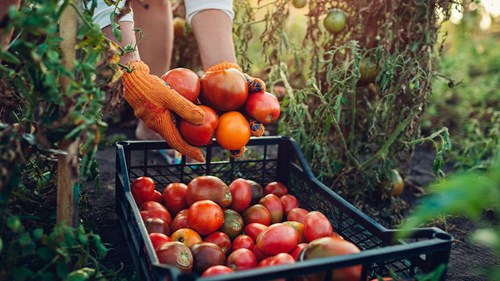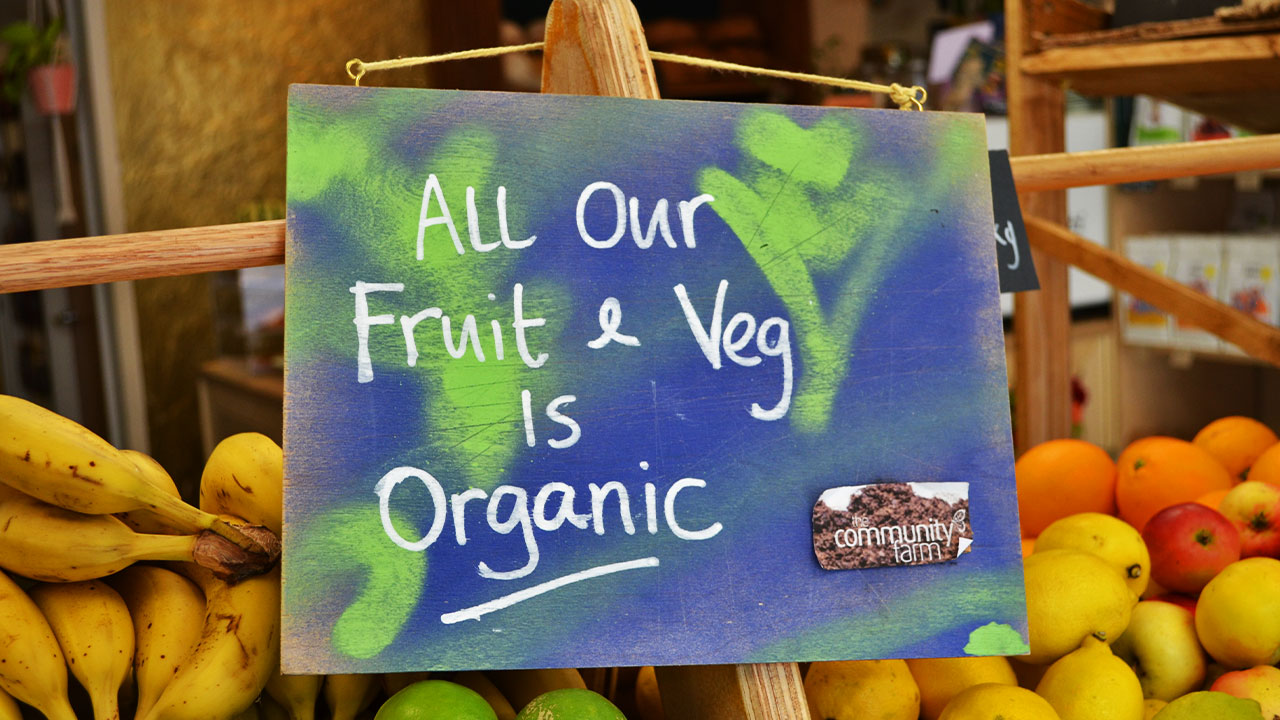
Beyond the Plate: Exploring the Benefits of Organic Food
26/03/2024
By Lee Nottle
In recent years, the popularity of organic food has surged as consumers become increasingly conscious of their health and the environment. While the debate over organic versus conventional farming methods continues, numerous studies and anecdotal evidence point to the myriad benefits of choosing organic food for both personal well-being and environmental sustainability. There is a wealth of benefits that make organic food a compelling choice for conscientious consumers.
Soil Health and Regeneration
At the heart of organic farming lies a profound commitment to soil health and regeneration. Unlike conventional farming methods that rely on chemical fertilisers, organic agriculture nurtures the soil through practices such as cover cropping, composting, and crop rotation. By fostering a vibrant ecosystem of beneficial microorganisms and organic matter, organic farming not only improves soil fertility but also enhances its capacity to sequester carbon and mitigate climate change.
Nutrient Density
While the organic food movement continues to evolve, its fundamental principles of sustainability, health, and social responsibility remain paramount.
Organic foods are often touted for their superior nutrient profile compared to conventionally grown counterparts. Research suggests that organic fruits, vegetables, and grains may contain higher levels of certain vitamins, minerals, and antioxidants. These nutrients are essential for supporting overall health, bolstering the immune system, and reducing the risk of chronic diseases.
 Reduced Exposure to Pesticides
Reduced Exposure to Pesticides
One of the primary reasons many consumers opt for organic food is to minimise exposure to synthetic pesticides. Conventional farming practices rely heavily on chemical pesticides to control pests and diseases. However, residues of these pesticides can linger on fruits, vegetables, and grains, potentially posing health risks when consumed over time. By choosing organic, individuals can significantly reduce their exposure to harmful pesticides, promoting better health outcomes.
Supporting Environmental Sustainability
Organic farming practices prioritise soil health, biodiversity, and conservation of natural resources. Organic farmers eschew synthetic fertilisers and instead utilise sustainable techniques such as crop rotation, composting, and natural pest control to maintain soil fertility and minimise environmental impact. Additionally, organic farming prohibits the use of genetically modified organisms (GMOs), which can have unpredictable effects on ecosystems and biodiversity. By supporting organic agriculture, consumers contribute to the preservation of biodiversity, soil health, and water quality.
Climate Resilience and Adaptation
In the face of climate change-induced challenges such as extreme weather events and shifting growing seasons, organic farming offers a pathway to resilience and adaptation. By fostering healthy soils, diverse crop rotations, and agroecological principles, organic farmers are better equipped to withstand environmental stressors and maintain productivity in a changing climate. Moreover, organic agriculture's emphasis on carbon sequestration and reduced greenhouse gas emissions contributes to climate mitigation efforts on a global scale.
Water Conservation and Quality
 Organic farming practices prioritise water conservation and protection of water quality. By not using synthetic fertilisers and pesticides, organic farmers reduce the risk of chemical runoff into waterways, safeguarding aquatic ecosystems and drinking water sources. Furthermore, organic agriculture often employs water-efficient irrigation techniques and promotes the use of mulch and cover crops to minimise water loss through evaporation and soil erosion.
Organic farming practices prioritise water conservation and protection of water quality. By not using synthetic fertilisers and pesticides, organic farmers reduce the risk of chemical runoff into waterways, safeguarding aquatic ecosystems and drinking water sources. Furthermore, organic agriculture often employs water-efficient irrigation techniques and promotes the use of mulch and cover crops to minimise water loss through evaporation and soil erosion.
Biodiversity Conservation
Organic farms serve as havens for biodiversity, providing habitats for diverse plant and animal species. Through the preservation of natural habitats, adoption of agroforestry practices, and promotion of native plant diversity, organic agriculture contributes to the conservation of pollinators, beneficial insects, and wildlife. This biodiversity not only enhances ecosystem resilience but also strengthens the natural pest control mechanisms that support sustainable farming.
Taste and Flavour
By choosing organic, individuals not only nourish their bodies with wholesome, nutrient-rich food but also contribute to a more sustainable and equitable food system for future generations.
Many proponents of organic food argue that it offers superior taste and flavour compared to conventionally grown alternatives. Organic farming practices, which focus on enhancing soil health and biodiversity, are believed to contribute to the development of more robust and flavourful produce. Additionally, organic food is often fresher, as it tends to be locally sourced and undergoes minimal processing, allowing consumers to enjoy the true essence of seasonal ingredients.
Promoting The Local Economy
Organic farming is often associated with small-scale, local agriculture, which can bolster local economies and communities. By purchasing organic products from local farmers' markets or co-operatives, consumers support small-scale farmers and contribute to the vitality of rural communities. Furthermore, buying local reduces the carbon footprint associated with food transportation, promoting environmental sustainability.
The decision to consume organic food is a personal choice influenced by various factors, including health concerns, environmental consciousness, and ethical considerations. While the organic food movement continues to evolve, its fundamental principles of sustainability, health, and social responsibility remain paramount. By choosing organic, individuals not only nourish their bodies with wholesome, nutrient-rich food but also contribute to a more sustainable and equitable food system for future generations.